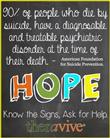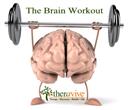It is a well-known fact that parenting does not come with a manual of standard procedure (which would indeed be helpful) and at times, various topics arise which make parents second-guess themselves. Recently, the topic of praise and narcissism has been at the forefront of social media and sensationalized pop-culture blogs. However, what is missing is an expert opinion on the matter based upon a combination of empiricism and years of experience with hundreds, even thousands of children.
[More]
Within the last few years there has been a plethora of information about the importance of gratitude in shaping one’s mental health and improving one’s outlook on life. Expressing gratitude and appreciation can be very powerful.
[More]
Research has shown that one tool that has proven to be effective in reducing anxiety in young children is educating parents to engage with their children in Non-Directive Play, also known as Child-Centred Play. Non-Directive Play Therapy has been practiced for years as an effective therapeutic technique to use with young children.
[More]
It’s summer, time for swimsuit season, sleeveless tops and cool, comfortable clothing. At least it is where I live, in hot and humid Houston, Tx. How is your body image in summer months? We are all bombarded by media messages day after day, but it can certainly increase in the summer months when we’re likely to be more exposed and more self-conscious of our bodies.
[More]
December 24, 2013
by Casey Truffo, LMFT

As natural and sometimes unavoidable as jealousy can be, it can (and should) be controlled. By allowing such fear, insecurities, and anxiety to build up, animosity can develop towards the one person that you’re supposed to love and trust.
[More]
September 12, 2013
by Christie Hunter

It can be easy to recognize depression symptoms in adults, after the turbulent adolescent years have passed. The real challenge in mental health is identifying signs of depression in teens, whose consistent moodiness may be the product of situational mood swings that are a normal part of growing up.
[More]
August 30, 2013
by Cindy Marie Hosszu

Back to School Series:
Bullying and being bullied is not a part of growing up. Bullying is not “kids being kids.” Being bullied is not a rite of passage. Over time, psychologists have come to understand just how damaging bullying behaviors can be to children, and into adulthood.
Kids who are bullied are more likely to experience depression, anxiety, sadness, loneliness, changes in sleep and eating patterns, loss of interest in activities previously enjoyed, health complaints, and decreased academic achievement. A small percentage of those bullied may retaliate in violent ways. Twelve of fifteen school shooting cases in the 1990’s involve those who had a history of being bullied.
Kids who bully others can have troubles such as adolescent alcohol and drug abuse, vandalism, fights, drop out of school, engage in early sexual activity, criminal convictions, and can be abusive toward partners, spouses, or children later in life.
Even those who witness bullying can suffer consequences such as use of tobacco, alcohol, and drugs, increased mental health problems such as depression and anxiety, and missed school.
What is Bullying?
Bullying is unwanted aggression that encompasses an imbalance of power, and is repeated over time.[1] It can happen anywhere, and at any time. Whether it is before, during, or after school, the playground, in transit to school, or even on the internet, it affects the person being bullied, the person engaging in bullying, and those who witness the behaviors. In 2011, 20% of 9-12 grade students were bullied nationwide. [2]
Types of Bullying
Verbal - Teasing, name-calling, inappropriate sexual comments, taunting, and threats to cause harm.
Social Bullying - Purposely excluding, encouraging others to exclude, rumors, and public embarrassment.
Physical Bullying - Hitting, spitting, tripping, taking or breaking another’s things, mean or rude hand gestures.
Kids Who Use Bullying Behavior
Risk – Although there is no consistent distinction for people who use bullying behaviors, some of the characteristics that are observed most in those who use bullying is that they tend to be well connected to peers, have social power, or are overly concerned with popularity. They tend to dominate or take charge of others. They can be aggressive, competitive, and easily frustrated, have less parental involvement, or issues at home. They have difficulty following rules, view violence in a positive way, think badly of others, and have friends who bully. They are not stronger physically, but have power over those they bully.
Warning Signs - Those who use bullying behavior may get into physical or verbal fights. They are increasingly aggressive, and may get sent to the principal’s office or detention frequently. You may notice they have friends who bully others. You may notice unexplained belongings or money, and they tend to blame others for their problems, and don’t take responsibility for their actions.
Support - While it is important not to call the person a bully, the child needs to understand that bullying behavior is wrong. Calling one a bully implies that the behavior cannot be changed, and it also fails to recognize that kids can be more than just a bully. They could have been bullied, or witnessed bullying also. While addressing bullying, model respectful behavior, because children learn by example. It is important to show kids that bullying will not be tolerated. Work with the child to understand some of the reasons they are bullying. It can be to fit in, or because they are acting out. Use consequences to teach how bullying is wrong, and build empathy to help prevent future bullying. Talk about what it is to be a good friend, the benefits of teamwork, the importance of respecting others. A project such as Civil Rights and Bullying is an example of a consequence that will build empathy. Involving the child in making amends, such as writing an apology letter, can help the child reflect on how their actions affected another.
Avoid the “Three strikes, you’re out” response, and suspending. They do not reduce the behaviors. Conflict resolution and peer mediation also do not work. It is not a conflict between people of equal power who share equal blame. Group treatment for students who bully does not work because group members tend to reinforce bullying behavior.
Remember to stay involved. Continue to encourage behavior that affects people in a positive way.
Kids Who Are Bullied
Risk – Kids who are bullied need help learning how to respond to being bullied. Like those who bully, there is no specific set of characteristics that describes who is at risk, but they are often perceived as different. They may be overweight, underweight, have different styles, or social standing. They are perceived as weak or unable to defend themselves. They can be depressed, anxious or have low self-esteem. They are usually less popular, or have fewer friends. They do not always get along with others, and may seem “annoying” or attention seeking as they struggle to fit in.
Warning Signs – Sometimes there are no warning signs, and kids do not like to talk about their situation. Some things to look for are changes in the child such as unexplainable injuries, lost or broken belongings, and frequent illness. You may notice changes in eating habits such as not eating, or being very hungry when they get home from school because they did not eat their lunch. They may not want to go to school and have declining grades, loss of interests, loss of friends, and want to avoid social situations. You may notice feelings of helplessness, decreased self-esteem, or self-destructive behaviors.
Support – Listen and focus on the child. Learn what is going on, and show you want to help. Assure the child that bullying is not their fault. Because they may struggle to talk about it with parents, seeking a therapist or councilor may be valuable. Use role play to help give the child way to deal with bullying. Work with the school, and make a game plan and find out what will help the child feel safe. Minimize changes to routine, so that the child is not singled out. If seating changes are necessary, make the change for everyone.
Never tell the child to ignore the bullying. Do not blame the child for being bullied. They did not provoke or deserve the aggressive behavior. Do not tell the child to fight back. Parents should resist the urge to contact other parents because it could make matters worse. Bullying is repetitive behavior, so be persistent and keep informed on the situation.
Witnesses
Those who assist do not start the bullying, but they encourage, or join in at times. Kids who reinforce are not directly involved, but give audience by laughing or encouraging the bullying behavior. Outsiders are kids who remain separate from the bullying and do not either engage or stop it. They often want to help, but do not know what to do. Kids who defend will comfort the child being bullied and may come to the child’s defense.
Prevent Bullying
Talk to kids about bullying. Encourage kids to do what they love. Help kids understand what bullying is and that it is not acceptable. Be a model of kindness and respect. Encourage kids to speak to a trusted adult if they are being bullied, or see others being bullied. Talk about how to stand up to kids who bully such as using humor, or saying “stop” directly and confidently. Talk about actions that don’t work like walking away. Discuss strategies for staying safe such as staying near adults or groups of other kids. Urge them to help kids who are bullied by showing kindness or getting help.
Getting Help
There are times when Bullying can get to a point where depression or stress has set in and a child will benefit from counseling. It may be helpful for the child to talk through the feelings they experiences as well as learn new skills such as assertiveness or self-esteem. Family counseling can also help as this can help to strengthen the child's sense of support, can open lines of communication and increase cohesiveness in a family.
___________________________________________________________________________________________________________
[1] "APA Resolution on Bullying Among Children and Youth." American Psychological Association (APA), July 2004. Web. 20 July 2013.
[2] "Bullying: What You Need to Know | StopBullying.gov." Home | StopBullying.gov. n.d. Web. 20 July 2013.
[3] http://www.dosomething.org/tipsandtools/11-facts-about-school-bullying
July 24, 2013
by Ashley Marie

The last article in our series on brainpower addressed the relationship between diet and mental capacity. But eating your way to a smarter brain is not enough.
You should also actively exercise your brain muscles. In the same way that you might go for a jog to tone your legs, you should also give your brain a workout to sharpen your thinking.
Benefits of Brain Exercises
In a fascinating study on cognitive training for the elderly, Ball et al.[1] found that brain exercises can actually decrease the cost of health care by helping to prevent mental illnesses, such as dementia. Mental training can even lessen the need for nursing homes for aging populations.
Participants of the study were divided into four groups. They were then tested in a variety of areas, such as verbal memory, problem-solving skills, and visual memory.
Almost a year later, three of the four groups of participants were given mental training exercises and then subjected to more tests.
The results of the study revealed that the majority of participants who received cognitive training actually enhanced their brainpower.
Executive Reasoning
The aging population is especially prone to losing or slowing down their executive reasoning skills.[2]
The executive part of your brain is found at the front of your head, just above your eyes.
Executive cognitive skills include the ability to problem-solve, even when the variables of a question are changed. Strong executive thinkers are able to examine complex data, as well as provide logical interpretations of their conclusions. They are also able to foresee how current data could affect the future. Entrepreneurs, for instance, excel at determining how to make a company grow and succeed.
A great way to prevent the loss of executive thinking is to test your mind with new sets of problems. By challenging your brain with the unfamiliar, you are able to keep your mind young.
Similarly, young children can develop their thinking skills depending on the toys that they play with. Toys that show a relationship between cause and effect teach them to trace patterns. For instance, a child will learn that if he or she throws a ball in the air, it will go up and eventually fall back down.
Executive Reasoning Exercises
There are several brain exercises available online – many of them for free.
For your convenience, below is a list of my favorite exercises. You can easily incorporate these into your daily routine to keep your mind active and alert throughout the week.
On Your Phone
Simple Brain Workout
Download here
You can easily install this app onto your iPhone or Android. It includes four brain exercises that help you enhance your memory retention and ability to focus. You can even keep track of your progress along the way. If you enjoy a healthy competition, then you are welcome to post your scores and view those of others around the globe.
30-Second Brain Training
Download here
Are you having a busy week and want a quick 30-second brain booster? These games are only 30s long each. Your score also indicates the health of your brain, depending on your results. This app allows you to test your skills to observe data, retain information, and perform mathematical calculations. You can try the General Test for a quick analysis of your thinking skills.
Math Workout
Download here
Are you tired of pulling out your calculator every time you’re buying groceries or calculating your expenses? The creators of this app claim that a daily 5-minute math workout for 7 days will improve your executive thinking skills. This game is suitable for all ages. Moreover, you can participate in a worldwide math competition and review your progress with charts and data.
On Your Computer
Über Brain
Click here
This colorful and interactive game tests the five major parts of your brain, including (1) memory retention, (2) logical reasoning, (3) concentration skills, (4) language skills, and (5) visual memory. Based on your performance, the game provides recommendations on how to maximize your brain workouts. It also tracks your progress for each of the five areas. Create an account for free to find out the best brain regimen for you.
In Your Family Room
Chess
A game of chess is not only a fun way to interact with a friend or family member.[2] It is also a great brain workout. Playing chess can increase your IQ, help decrease the chance of Alzheimer’s, exercise both your left and right brain, enhance your memory retention, sharpen your problem-solving skills, and improve your understanding of cause and effect.
Keep Your Mind Active
It is easy, quick, and fun to improve your brainpower. Even better, you can exercise your brain without spending a penny. There are more advantages than disadvantages to beginning your brain workout. Training your brain for a few minutes today is a long-term investment in tomorrow.
[1] Ball, K. et al. 2002. Effects of Cognitive Training Interventions With Older Adults. JAMA. Pp. 2271-2281 [online] Available at: <http://jama.jamanetwork.com/article.aspx?articleid=195506>
[2] Bragdon, AD. 2011. Brain Games: Brain Teasers, Logic Tests, and Puzzles to Exercise Your Mind. New York: Skyhorse Publishing.
[3] 2013. 10 Big Brain Benefits of Playing Chess. Chess Vibes. [online] Available at: <http://www.chessvibes.com/reports/10-big-brain-benefits-of-playing-chess>
The origins of Thanksgiving have nothing to do with a bunch of Indians and pilgrims sitting down for a bountiful feast of turkey. In reality although the settlers with pale faces had been bothering the Indians in addition to giving them many new diseases they had never had were starving by this time. The Indians took pity on them and brought them some corn and fish. Thanksgiving has a lot of emotional disappointment and this article will show you how to deal with this.
This is a period of time in which you are expected to give to others and be generous. Although the intention is good it often leads to self sacrifice and disappointment. This is a period of time in which you must balance your newfound humanitarianism with the demands on your own life. If you do not continue to reach your own immediate goals either at work or at home you will find yourself being irritable and exhausted. Remember that an obligation to give to others does not mean that you have to sacrifice your own needs. You must remember to give yourself some time for your own physical and mental well-being. It is a time when we most often neglect the things we do to make ourselves happy and keep ourselves balanced like exercise, yoga, or other spiritual practices for your own physical and mental well-being This is a time to find some positive solutions to deal with your family members past resentments. Remember that when I family system gets back together it quickly returns to whatever difficulties encountered before. Even if you're the only person in the room aware of this it may help you from dealing with the fallacy that "now that we're all together we must be alright."
This leads to the need to decide on your priorities and organize your time adequately. I this will counteract your feelings that you have not a planned enough for Thanksgiving. If you find additional time you can always volunteer to feed the poor would do random acts of kindness. You may also need to have planned out some unstructured inexpensive holiday activity because this holiday evokes a feeling of being served good food rather than organizing fun things to participate in. Spending some time thinking about this will save the day when you are reunited with your family and no one knows what to do.
One of the major fallacies are that Thanksgiving will take away feelings of loneliness, sadness, fear, anger and frustration. This holiday is heavily advertised is a time in which everyone appreciates being together. The fallacy behind that becomes clear when you are reuniting with family members and you realize why you have become independent of them. You may find yourself being overwhelmed with anger or fear or worse yet feeling alone being surrounded by your family. The worst emotion that creeps up on this holiday is resentment. It is usually triggered by a previous bad relationship with a family member. Beware of grudges and slights you have suffered in the past and keep them from resurfacing.
Thanksgiving is designed to encourage gluttony. This is not an open invitation to eat too much. Remember that most people with eating disorders simply want to have something to control in their lives and to avoid the resentment and self-hatred you will naturally feel after eating way past feeling hungry. This includes other over indulgences. You know by now what you need to keep a careful eye on so that you don't lose control and this may be an opportunity to set an example with other family members who still have raging addictions. You may want to have some contingency plans when they become abusively angry, drunk or chemically impaired.
If it the end of the holiday feast you find yourself still feeling depressed or resentful remember what the Indians did. They didn't like these foreigners who is strange customs and behaviors showed such a resentment towards nature that it disrupted and destroyed the Indian culture. Yet they still took pity on these poor starving people and threw them a fish or two.
November 16, 2011
by Christie Hunter

By Tanya Glover
Theravive.com Contributor
As complex human beings, we all can benefit from self refection and self awareness. They are both important parts of who we are and who we aim to become.
Self Awareness
Being self aware means having the ability look within ourselves to get a clear snapshot of our thoughts, beliefs, emotions, motivations and our personality in general. Becoming self aware is harder than one may think. It is not just simply being aware, but experiencing a heightened sense of awareness. Though this heightened awareness you can more easily interpret your thoughts and emotions and figure out what your true feelings and motivations are. Self awareness if important because once you are able to figure out these things about yourself, you can make the changes you need to make your life better. Emotional intelligence (being able to identify and control your emotions) is directly connected to becoming self aware and plays an important role in becoming a successful human being.
Why Be Self Aware?
By becoming self aware, you are creating the things you need to become in control of your emotions and behaviors. When you reach a high level of self awareness it is almost as if your thoughts are speaking to you directly, helping you to figure out what paths to take in your life. You will be able to control how you react to things and how to focus your attentions to the most beneficial areas. These things are what help you to make positive changes in your life. Without self awareness, it can be very difficult to steer your thoughts and emotions in a healthy direction and you may find it hard to make good decisions in your life. In essence, becoming self aware is the first step on the journey to finding the best you are and how to direct that energy into positive directions.
Self awareness is also a vital part in having good and healthy relationships. This goes for romantic relationships, friendships, family relationships and relationships with co-workers. By changing the way your mind interprets what you think you are able to also change your emotions which in turn helps to enhance the quality of the relationships in your life. Being self aware also allows you to understand others better and be able to empathize with them which also helps build better relationships.
How to Become Self Aware
The most basic way to begin your development of self awareness is to practice putting your focus on all the details of your personality and behaviors, even the smallest details as they can prove to be the most important things that effect who we are. You cannot learn how to become self aware by reading a book. A book can indeed teach you things and but you on the right path to self awareness, but you have to remember that when reading a book, what you are focusing your attention on is the concepts it is teaching you. What you must focus on to become self aware in the concepts in your own mind that deal with you, your emotions and your behaviors. In a way, learning how to become self aware is like learning a new dance step. You are conscious of each step you are making and to the beat of the music. Think of yourself as the dancer who has to pay attention to the beat of the music. The dance is you and the beat is your mind and the consciousness of what it contains. When you are a dancer and you make a misstep, you have to rethink what caused it. It is the same way when you are becoming self aware. When you experience a stressful or emotional situation or moment we must stop and take it all. By doing this you are looking for the triggers of your emotion or behavior. If you can figure this out, you can avoid the triggers or find a way to confront them, changing how your react to them. According to many mental health professionals, there are five specific ways for a person to become happier in their lives through self awareness.
ØChange your core beliefs
ØHush the voices in your head telling you to react
ØPut a stop to having purely emotional reactions
ØPut communication and respect at the top of your relationship priority list
ØDo whatever you can to create a life filled with happiness and love (self love especially) in your life.
Self Reflection
Self reflection is not much different than self awareness and they are very much connected to each other. The definition of self reflection is the exercising of introspection, coupled with the willingness to learn about yourself, in order to help achieve self awareness.
Self reflection is something that has been practiced from the early days of man and is deeply rooted in philosophy. Self reflection in the world of philosophy refers to the understanding of your mentality, beliefs, and life desires. According to philosophical beliefs on self reflection, all of our thoughts and sensations come with beliefs that have an effect the fact that we are having those thoughts and beliefs (Locke, 1689). That may sound complicated but honestly, it is a very simple concept. Simply put, our thoughts and beliefs are directly impacted by the emotions and sensations that come with those beliefs. This is why it is important to self reflect and become self aware.
Conclusion
Again, a book cannot teach you how to do these things. However, a book can help you to figure out how to get there yourself. There are also many self help programs to guide you on your journey. Your journey can also be aided by talking with a professional counselor. The importance of learning self awareness and self refection cannot be stressed enough as they will help you to be a better person for yourself and those whom you love.